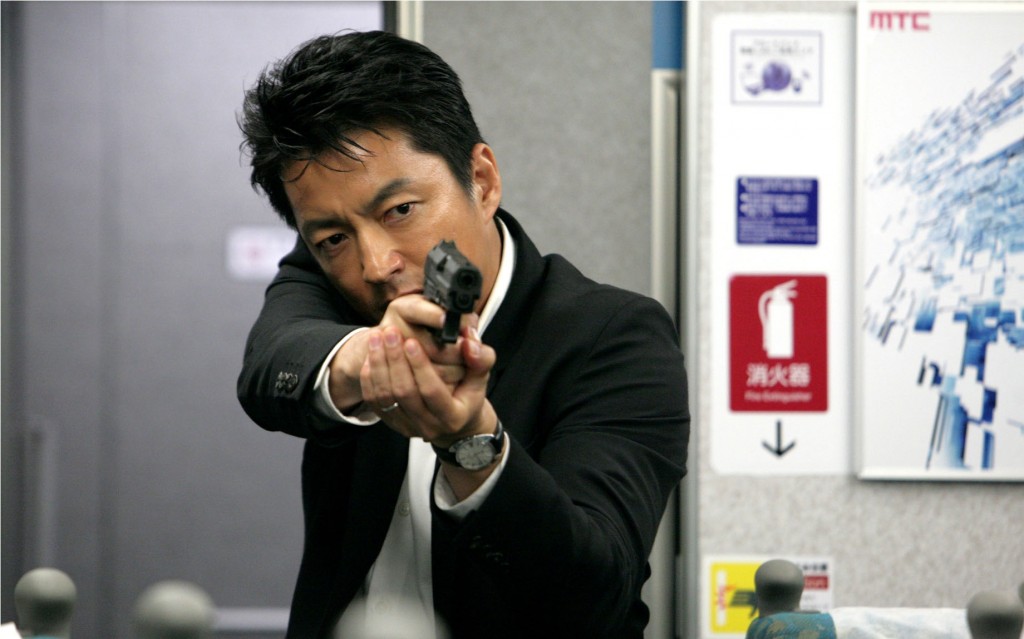Shield of Straw (Wara No Tate) Review
 Takashi Miike returns to Cannes with perhaps his most conventional film yet, an overblown but highly entertaining thriller about five cops transporting a despicable child murderer across Japan.
Takashi Miike returns to Cannes with perhaps his most conventional film yet, an overblown but highly entertaining thriller about five cops transporting a despicable child murderer across Japan.
Tatsuya Fujiwara, who is perhaps best know in the West for his portrayal of the naive and sweet Nanahara in Kinji Fukasaku’s Battle Royale, plays Kiyomaru, the child murderer whose life is in great danger. Kiyomaru was responsible for the death of the young granddaughter of a very wealthy and influential man, Ninagawa (Tsutomi Yamazaki), who decides to take matters of justice into his own hands and places an advertisement in a number of national newspapers offering a reward for Kiyomaru’s death.
Following an assignation attempt by Kiyomaru’s only friend he turns himself in at a police station and becomes their problem. A big problem. With 1 billion Yen up for grabs for anyone who kills Kiyomaru, rewards dished out even for those who simply attempt to kill him and the great influence of Ninagawa gradually making itself felt more and more the police are left struggling to keep Kiyomaru safe as they transport him across Japan to stand trial for his crimes.
Assigned to protect him are four, then five, police officers who struggle with the assignment to protect a criminal who shows no signs of remorse and taunts them whenever the opportunity presents itself. When a website goes online which seems to be tracking their movements the cops also begin to doubt one another and as tensions became strained the (melo)drama increases in pitch no end.
Miike shoots the film like he’s attempting to outdo every scene that has preceded it in terms of stakes and drama and with a clichéd and far too bombastic score from Koji Endo the film almost teeters on the precipice of appearing like a parody of a Tony Scott film. Miike, operating on a propulsive script from Tamio Hayashi, manages to reign it in just enough though. Explosive truck flips, shootouts and frantic editing are the order of the day though and all on a larger canvas than Miike is generally free to paint on.
Grounding the high stakes melodrama and more thrilling action is the underlying importance of what the cops are doing. Their assignment is not simply to protect Kiyomaru but the very idea of justice and what the Japanese police force represents. If Kiyomaru dies what does this mean for justice.
Swimming in deep waters filled with issues such as the death penalty, justifiable homicide, vengeance and what does the concept of justice actually mean, Miike rarely dips too far below the surface but this all gives interesting flavour to what is already a very enjoyable thriller.